Any Time, Any Place

For four decades, master mechanech Rabbi Shmuel Zalmen Kleinman has been reaching out to public school kids of all backgrounds and placing them in frum summer camps and yeshivos — and he’ll do whatever it takes to help them
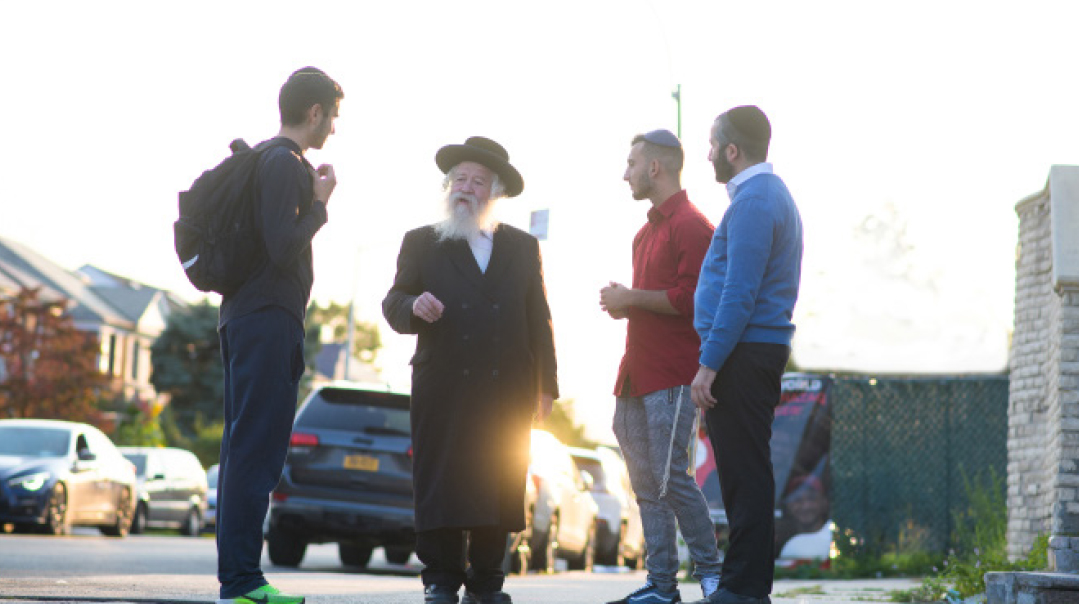
Photos: Naftoli Goldgrab
On a Queens street, a middle-aged Jew with a flowing white beard, wise countenance, and chassidic garb that clearly announces “Williamsburg” stands chatting easily with two young Bukharian men. No one thinks the scene is odd though, because Rabbi Shmuel Zalmen Kleinman’s face is as well-known in these parts as it is on Lee Avenue, thanks to decades of dedication to drawing young Jews closer to their heritage.
The real surprise, though, comes at the end of the conversation with these former students of Midrash L’man Achai, the yeshivah high school he founded over two decades ago for teenage boys regardless of religious background or Jewish education level — the crown jewel of his wide-ranging kiruv activities.
“So how’s it going?” he asks. “What are you guys doing to put some Torah in your life?”
“Rabbi, I wish I could,” says one of them, “but with work and family I just have no time in my day for Torah study.” The second one nods in agreement.
“So when can you make time?”
Thinking he’d easily brush the rabbi off, he says, “Maybe at 6 a.m.” The reply isn’t a split-second in coming. “Okay, good. I’ll see you both tomorrow at six.”
Rabbi Kleinman isn’t kidding. The next morning finds him driving out of Williamsburg at 5:30 a.m. for a 6 a.m. learning session in Queens, which is to become a long-standing chavrusashaft. Not for pay, nor for recognition, but just because two young Jews need spiritual sustenance and he’s determined to provide it.
Over many decades, Rabbi Kleinman has singlehandedly sparked a positive upheaval in two quite different Jewish communities: He has brought the beauty of a Torah way of life to untold numbers of Sephardic and Russian families, plucking their children from the melting pot of New York’s public school system and placing them in yeshivos and camps as the first step on the path to a successful observant life.
And he’s introduced hundreds of his own neighbors to the idea that they, too, have something precious to give to unaffiliated boys whose neshamos are open to something more.
We’re All a Car Service
Rabbi Kleinman’s career of uniting Jews with their Father in Heaven began some 40 years ago, on the very first day after his sheva brachos ended. And like many classic New York adventures, it all started in a taxi. He was traveling from Williamsburg to spend Shabbos at his parents’ Boro Park home and struck up a conversation with his Russian Jewish driver who, it turned out, had one son in yeshivah and another in public school. Whenever Rabbi Kleinman needed a car service after that, he’d ask for his new Russian friend so that he could continue the conversation.
Eventually, he became close to the family, helping arrange parnassah for the son in yeshivah (whose own children are today studying in yeshivos), and bringing Yiddishkeit into the life of the son in public school. Rabbi Kleinman’s next opportunity came when he took the same car service with another driver. This driver, Rabbi Kleinman learned during their conversation in Yiddish, admitted that he’d come to America in order to run away from Yiddishkeit, leaving a wife and children behind in Eretz Yisrael. Rabbi Kleinman recognized the driver’s family name as belonging to the Vizhnitz chassidus, and later that day he walked into Williamsburg’s Vizhnitzer shtibel, found the driver’s cousin, and arranged contact. Within a month he was back in Eretz Yisrael, with his life back on track.
A few weeks after that, Rabbi Kleinman was driving past the home of the old Pupa Rav in Williamsburg when he spied an elderly Sephardic lady climbing the stairs to the house. “It was the summer and I knew the Rav was in camp, so I stopped and said, ‘The rabbi’s not here now, how can I help you?’ She said, ‘I heard that this rabbi helps people go to yeshivah and I have two grandchildren who need to go to yeshivah.’ I took her number and said I’d be in touch. Just then,” Rabbi Kleinman relates, “the driver of the cab who had brought her there jumped out of the car and said, ‘Really? Can you send my son to yeshivah too?’ ”
Is there some lesson here about car services we should know about? “Let’s just say we’re only here in this world as a car service,” Rabbi Kleinman quips. “People want Yiddishkeit, and when we say people don’t want, it’s because we’re not doing what we have to do. I don’t have to be the one who brings him all the way, but I do have to send him in the right direction.” And that — serving as Hashem’s car service driver — is precisely what Rabbi Kleinman began doing, and has never stopped.
As a grandson of Rav Avraham Kleinman, the Margaretener Rav who passed away in 2007 at age 100, and, through his wife a great-grandson of Rebbe Shayale Kerestirer, Rabbi Kleinman’s chassidic pedigree is impeccable. A talmid of Kashau and Satmar, he learned for many years after marriage in the Satmar kollel and another one run by his zeide, and also taught in various chassidishe chadarim over the years.
Rabbi Kleinman had an identical twin brother, Reb Aron Hersh, who was tragically niftar last March after contracting COVID-19. For many years, Reb Aron Hersh taught in Yeshiva Chasan Sofer’s elementary school, and when he had to miss a day, his twin, Reb Shmuel, could step into the classroom without the boys even knowing the difference (until the end of class, when he’d reveal his identity).
But beginning with that first fateful taxi ride and throughout his years in kollel and chinuch, he was constantly being approached about public school kids of all backgrounds — Russian, Sephardic, American — whom he would place in yeshivos and summer camps.
He’d walk into public high schools and introduce himself to the principals, some of whom were traditional or observant Jews, offering to speak to their students about options for staying off the mean streets in the summer, and they’d give him a room in which to meet the students. Orhtodox teachers knew Rabbi Kleinman was the person to call to get their non-observant Jewish students into day schools and camps.
During the summer, he’d show up unannounced at non-religious Russian Jewish bungalow colonies in the Catskills, holding bags filled with tzitzis, yarmulkes, and treats for the kids. It wasn’t long before he was running dozens of learning groups in these colonies, bringing frum teenagers from nearby bungalow colonies to staff them.
But how does a Yid in full chassidic dress just walk into all these places and get a respectful hearing, not to mention succeeding in winning them over? Rabbi Kleinman, who has obviously heard the question before, patiently explains that “the pintele Yid that yearns to serve Hashem always senses the truth, so the dress code doesn’t really matter. As long as you truly want to do Hashem’s will, it will come through. Just the other day, I saw a boy walking in the street here in Queens without a yarmulke and he came over to me. The first thing I did was take out a yarmulke and put it on him, and then he said, ‘My friend wants to come for Shabbos, can I come with him?’ ”
For Every Yid
An essential part of Rabbi Kleinman’s kiruv approach is hosting boys for Shabbos, both those already in yeshivah, and public-school kids who attend his after-school programs. “In addition to the organized shabbatons we have several times during the year,” he says, “we also have a weekly Shabbos placement, which means that any boy who wants to come for Shabbos on any given week has where to go. Some boys come every Shabbos.”
Many families in the neighborhood — at one point there were two hundred on Rabbi Kleinman’s list — are eager to have boys every week, whether for sleeping or for a seudah or to learn with them on Friday night or Shabbos afternoon, or just to drive them to or from Williamsburg.
But is it really that easy for boys coming from a mix of Sephardic and American cultures to relate to the Kleinmans and their neighbors? “We’re all one family,” says Rabbi Kleinman.
Some in Williamsburg were a bit wary at first. “There’s one rav in the neighborhood who, every time he sees me walk past his house with boys, runs out and accompanies us down the block. He said to me, ‘This is teshuvas hamishkal, because years ago when I used to see you, I’d walk the other way, so now I run toward you. I want to be a part of this.’ You know, we think of kiruv as a stepchild, but Avrohom, Yitzchok, Yankev, Moishe Rabbeinu, every one of our forebears, were involved in it. Some people think kiruv is only for a certain type of person, but it’s really for every Yid. Sure, there are different approaches for how to go about it, but that’s just how, not if.”
And, Rabbi Kleinman observes, it’s impossible to know which interaction with which frum Jew is going to have an important impact on a boy, even a transformative one.
“I’ve seen many boys who became frum not from our yeshivah or from being in our camp, or from spending Shabbos with us — but from the chassidishe fellow who drives them home from a Shabbos in Williamsburg. There’s one particular yungerman who all the boys like to get as their driver. He comes from London and is a lively fellow, and he has had a huge impact on the boys.”
Rabbi Kleinman mentions how one boy was always busy with non-Jewish music and profanity, but he gave it all up after one ride, and not because anyone told him to. “All I know is what the boy told me: That he had what he called a ‘cool talk’ with this chassidishe driver, and in the midst of that, he saw that when a car passed by blasting rock music, the driver frowned and closed his window in order not to hear it, and that was all this boy needed.”
Once a year, there’s a Shabbos at a hotel for many of the hundreds of families with whom Rabbi Kleinman is involved. This past January, the weekend had a twist: For the first time, L’man Achai brought 50 families from Williamsburg together with 70 Bukharian families for a Shabbos experience in Danbury, Connecticut, which doubled as a seminar on parenting. Most of the chassidic families have been hosting boys for years but have never had the opportunity to meet their guests’ own families.
At Any Hour
By now, Rabbi Kleinman’s presence not only isn’t unusual but is a beloved one in the Bukharian community, numbering between five to eight thousand families, centered in the Queens neighborhoods of Forest Hills, Rego Park, Lefrak City, Flushing, Fresh Meadows, Briarwood, Kew Gardens, Jamaica Estates, and Hollis Hills.
And the affection is mutual. Rabbi Kleinman speaks with feeling of the warmth of Bukharian Jews and their temimus, the simple emunah and sensitivities for Yiddishkeit they display. To illustrate, he describes a phone call he received a few weeks ago at 2 a.m. from a talmid, asking him to please say Tehillim for his father, who’d just suffered a heart attack. “I called him at 5 a.m. and asked, ‘How’s your father?’ ‘It’s over,’ he said. ‘The funeral is at ten.’ A little while later, his sister calls me and says, ‘What’s really bothering me is that my father didn’t keep Shabbos — what’s happening with him now?’ Such temimus. I told her, ‘What you do now is what will make the difference.’
“Then, when I went to be menachem avel, another son, who learned by us a few years back, told me, ‘Two days before he died, my father saw me smoking and said, ‘Please stop.’ I said, ‘I’ll make a deal with you: Don’t work on Shabbos and I won’t smoke.’ So the father kept his side of the bargain and now, says the son, ‘I have to struggle to keep my side of the bargain.’ ”
Rabbi Kleinman attributes his success to his extensive follow-up, and to always being available. He’s always there, at any time and any place, to advise and teach and listen and commiserate, as he accompanies each one of the hundreds of young men in his network through the highs and lows of their life journeys.
One bein hazemanim, Rabbi Kleinman’s son was reviewing his learning and decided to call his rebbi to ask about something he didn’t understand. But it was 11 p.m. and his mother pointed out that it wasn’t proper to call a rebbi at that hour. “But why not?” he responded, “Tatty gets calls from his talmidim then and even later.”
Indeed, Rabbi Kleinman once told his students that if they needed him, they can call at any hour, and one young student named Daniel Babachayev decided to test him. He called at 3 a.m., and sure enough, the rabbi picked up right away.
Today, Reb Daniel is L’man Achai’s secular studies principal — a graduate who eventually came back to give back. As a nine-year-old kid from a non-religious family enrolled in Brooklyn’s Be’er Hagolah Institutes, Daniel began going to the Kleinmans every Shabbos. The education he received at L’man Achai gave him enough of a boost to go on to the Yeshiva of South Fallsburg, and after years in kollel, Reb Daniel first became a teacher, then a principal in Midrash L’man Achai high school.
In fact, L’man Achai’s staff is composed almost entirely of former talmidim, which Reb Daniel says is a big plus, since they’re able to relate very strongly to the boys and to communicate openly with their parents, too. “They can’t tell us, ‘You’re Ashkenaz, you don’t understand.’ We know exactly where they’re coming from.” One boy refused to stay in public school and switched to L’man Achai even though his parents refused to pay tuition for him there. Today, he’s frum and a therapist — and the high school’s math teacher, too.
And Rabbi Kleinman is their tireless leader. After being in yeshivah all morning, Rabbi Kleinman starts teaching groups of public high school juniors and seniors whose classes end at noon. After a few hours of that, he starts making his rounds to check in on how the boys he’s placed in various other yeshivos are doing. He knows all the principals and he has access to the classrooms. At night, it’s back to teaching public school kids and making the rounds to see who he can get to come for Shabbos, or into summer camp, and eventually into yeshivah.
Rabbi Babachayev notes that Mrs. Kleinman is an integral part of her husband’s work as well, and not just because “without the wife, there’s no Rabbi Kleinman. I remember one summer in Camp L’man Achai, I was looking at the Gemara I was learning and wondered out loud, ‘How am I going to finish all this?’ Mrs. Kleinman heard me and said, ‘What do you mean? Look at how many pages you already finished. Don’t look at this side, how many more pages you have to go — look at this side, how many you already did.’ That gave me chizuk for many years.”
Everything for a Ben Torah
Using keen psychological insight, Rabbi Kleinman is a master at sizing a boy up to know which yeshivah is right for him. The decision of where to send him is critical, says Rabbi Babachayev, because “if you put him in the wrong place and he walks out of there, you’ve probably lost him because now he’s had a bad taste for yeshivah. I’ve met a few boys like that who had a bad experience in yeshivah and I told them, ‘Let’s try something else,’ but they said no, because they’d already given up on that.”
But successfully getting a boy into yeshivah or camp is only the first step. Rabbi Kleinman goes about negotiating the tuition and helping raising the funds to pay it. He speaks with the boy’s rebbi to explain what his makes his new talmid tick and suggests the approach he needs to succeed, staying in touch with him throughout the year.
He visits the boy periodically in school and at home to see how he and his parents are doing and provides after-school tutoring if needed. The boy receives tefillin for his bar mitzvah, matzos before Pesach, arba minim before Succos, a menorah at Chanukah time, and anything else he might possibly need to make it as a ben Torah.
After a summer-camp experience, public school students who aren’t ready to make the switch to yeshivah, or whose parents won’t let them, can still attend after-school groups that Rabbi Kleinman or others run, where the learning is as serious as in a regular yeshivah high school.
But back when he started yeshivah placement and follow-up several decades ago, it was still an informal, one-man effort without even a name to go by. That changed one summer about 30 years ago when a frum public school teacher who ran her own Sunday program for kids in her school tried reaching Rabbi Kleinman for help with paying for summer camp for ten of those kids.
But that summer, the Kleinmans were staying in a bungalow colony with 60 families and one pay phone, and she was unsuccessful in getting through. So she did the next best thing: Opening the Boro Park phone book, she looked for the first Kleinman and dialed that number. As it happens, Rabbi Shmuel Kleinman lives in Williamsburg, but his brother, Aron Hersh, lived in Boro Park — and because he was listed in the phone book as “Aaron,” he was the first person she called.
When Reb Aron answered, she said, “I’m looking for the Kleinman who helps get public school children into yeshivahs and camps.”
“Yes, how can I help you?”
“I have ten kids who need to go to camp.”
He asked her for the details and told her he’d take care of it. But when it came to getting the money together to pay for it, he called every organization that claimed to provide funding for summer camps and they all said they were out of funds.
Reb Aron realized that they needed their own organization, and by the time his brother returned from the summer, he’d already worked with a lawyer and accountant to create a corporate structure, and thus was the name L’man Achai born. And after raising the money for those ten kids’ camp experience, Reb Aron also undertook to raise the money for the first year’s budget of the newly titled organization. Since then, Reb Shmuel has been the organization’s indefatigable fundraiser too, treating a donor of five dollars as respectfully as one who’s given five thousand.
With his passing just months ago, the name Rabbi Kleinman’s brother first gave so many years ago — L’man Achai — takes on new meaning. Reflecting on his brother’s life, Rabbi Kleinman says he was “a master at building a child up.” In later years, he says, “my brother stopped teaching in cheder and began learning with boys privately, but never asked for money. Parents paid what they wanted to, and some didn’t pay at all.”
No Calculations
Rabbi Kleinman’s yeshivah and camp placements and constant follow-up are still going strong, and the network of young men that he’s helped get into schools and camps, and with whom he is in regular contact, numbers in the thousands. But today much of his energy is directed toward the high school, Midrash L’man Achai, and his summer program, Camp L’man Achai, located way up in the Catskills town of Andes, New York.
The camp, which he established about 35 years ago, draws boys from both Ashkenazic and Sephardic backgrounds, who come from almost every state in the Union and from countries like Russia, Spain, Germany, and Eretz Yisrael. Many of them find out about the camp by word of mouth and others learn about it from rabbis and Chabad shluchim around the world.
The camp’s director, Rabbi Yitzchok Aron Steinmetz, says the campers sometimes surprise him with what they find to be the best parts of the experience. Once, he says, a camper told him the best part of his summer was simply sitting in shul davening surrounded by so many other boys. For a boy trying to be Jewish in a small town somewhere, that can a very inspiring thing.
When Rabbi Kleinman asked one boy, a very studious sort, how he found out about the camp, he said, “Tishah B’Av.” He explained that the previous year, his parents had signed him up for a Reform day camp whose season began on the fast day. He refused to attend the camp and his mother went from synagogue to synagogue to find him a place to go until she met one rabbi who knew about Camp L’man Achai.
For several years in the 1990s, Rabbi Kleinman arranged for various Brooklyn yeshivos to host a special class just for boys he had pulled out of public schools. But he realized that there was a need for a yeshivah for such boys in Queens, where the bulk of the Bukharian community is located, and so, a little over 20 years ago, he opened his own high school, Midrash L’man Achai.
To Rabbi Levi Mushaiev, a L’man Achai alumnus who went on to learn in several high-level yeshivos, is currently a marbitz Torah and and is now the high school’s director of development, that initiative wasn’t surprising. “When it comes to doing Hashem’s work, Rabbi Kleinman makes no calculations. First he commits and then he figures out how to do it. He has a rare kind of dedication, with nothing in it for him, not financial, not respect, nothing. He just places the ratzon Hashem before him at all times, which to him means doing everything for another Jew that’s in his power to do.”
Midrash L’man Achai doesn’t aim to steer its graduates to a particular path, whether it’s to become talmidei chachamim or professionals, but to help boys become proud, knowledgeable Jews and solid members of their community. Still, there are many alumni who have gone on to excel in the Torah world or business and the professions, and sometimes in both.
One student began with alef-beis in Camp L’man Achai at age 12, and after high school he went on to learn in the Deal yeshivah and in Beth Medrash Govoha in Lakewood, and fifteen years later, made a siyum on Shas. He’s since moved to Eretz Yisrael, where he’s a rosh kollel as well as a shochet, sofer, and mohel. He’s now about 30, but he still calls Rabbi Kleinman every Erev Shabbos and Yom Tov to hear divrei Torah or to share some of his own. Other talmidim have gone on to become doctors, dentists, therapists and the like, and still find time to give shiurim and become leaders in their shuls.
Many of the boys go on to other yeshivos after graduation, such as Chaim Berlin, Ohr Hachaim, Chofetz Chaim, and Sh’or Yoshuv, but Rabbi Kleinman has never considered starting his own beis medrash program, because, he explains, “our greatest success is when we can help a boy advance so much that he can go on to a mainstream yeshivah program which will be much better for him. The same thing is true if there’s a boy who’s still in public school but I see he can actually make it in a regular yeshivah — then we try to send him there. If he can do better being in a mainstream yeshivah high school or beis medrash, why would I want anything else for him?”
There are those boys who don’t make it in yeshivah either, but usually when that happens elsewhere, the principal never sees them again. Not Rabbi Kleinman, says Rabbi Mushaiev. “His thinking is always, ‘It’s not the boy’s fault, it’s that I don’t have the tools to help him.’ And that’s why he’ll arrange for the boy to come every other week for Shabbos, and he makes sure to learn with him before school or after school to help him succeed.”
There was a young man, he recalls, who decided to leave L’man Achai and go back to public school. Rabbi Kleinman kept up a relationship with him, learning with him when possible and inviting him for Shabbos. Many years later, this former student spoke at a yeshivah parlor meeting, bursting into tears as he recalled those months and how foolish he’d been, and said he was now trying to make up for it by persuading boys in a similar situation to remain in yeshivah.
According to Daniel Babacheyev, as much as Rabbi Kleinman puts into the school, he takes nothing out. “If a boy comes to him for Shabbos without proper clothing and he doesn’t want him to feel out of place, he’ll take him to the store and buy him what he needs, but always out of his own pocket. It goes so far that he refuses to attend the yeshivah’s own events, such as a weekend at a hotel, unless he pays full cost for his family.” And, Rabbi Babachayev adds, “Rabbi Kleinman has no office, either, other than the two inside pockets of his rekel that serve as his file cabinets. I once made sheva brachos for a talmid and Rabbi Kleinman came, as he does to every simchah of a talmid. So we’re all sitting there and the chassan asked with a grin, ‘Rebbi, do you still have my permit?’ When he was still in high school, he’d gotten a driver’s permit, but he was a wild kid and Rabbi Kleinman said, ‘Can I please have it? It’s dangerous for you to drive now.’ The boy gave it to him and everyone forgot about it. Now, years later, the chassan asked him about, and Rabbi Kleinman answered, ‘Sure, one minute.’ He reached into his kappoteh and pulled it out. ‘Here, this is yours….’ ”
During the thick of the coronavirus crisis, his yeshivah continued on Zoom and after Pesach, Camp L’man Achai also started its season early on Zoom as well, with boys from Atlanta, California, Florida, Toronto, and Queens joining in. Rabbi Kleinman gave shiurim, some for his yeshivah talmidim and others for public school boys, beginning at six in the morning and lasting until 12:00 at night, with only a one-hour break in the middle of the day and time to daven the three tefillos.
Which boys get up at six in the morning? “Boys who want to learn,” Rabbi Kleinman says. One of them was a public-school student in California, where it was 3 a.m. when the class began, and as a result of the learning skills he gained over the summer, he has now has joined the beis medrash program of a yeshivah near where he lives. One class was on sugyos in Kodshim, which was requested by some boys who told Rabbi Kleinman, “We’re Kohanim and we really want to know what we’ll do when the Beis Hamikdash will be built.”
To find someone as driven, and as selfless, as Rabbi Kleinman is rare. But perhaps it’s because his drive stems, in Rabbi Mushaiev’s words, “from being very goal-oriented, and the goal is whatever Hashem wants him to be doing.”
Rabbi Steinmetz tells of the time several years ago when, just days before Pesach, the Kleinmans’ home burned down, although miraculously the family was spared from harm. That night, he got a call from Rabbi Kleinman wanting to know how preparations for the upcoming camp season were going. “Rabbi Kleinman,” he said incredulously, “your house just burned down.” “Yes, that happened,” Rabbi Kleinman replied, “but now we need to focus on what we need to do for camp.”
But surely part of the secret to Rabbi Kleinman’s success is that he also tries to feel what Hashem must feel about His estranged children. Once, Rabbi Kleinman recalls, he was in a kosher grocery store in the Catskills buying snacks to bring to the non-religious bungalow colonies where he’d organized youth groups. There was a Russian Jewish boy packing bags at the checkout counter and he said to Rabbi Kleinman, “Maybe you have a pair of tefillin for me?”
“You need them for today?”
“No, for today someone lent me, but I want to make sure I have tefillin to take home after the summer.”
Rabbi Kleinman said he’d work on it, and when he came back with tefillin, he asked the boy, “I’m just curious, did someone tell you to ask me?” The young man said, “No, I asked so many people, but everyone thought I was making a joke, so either they answered with a joke or they reacted like I was bothering them. You were the only one who took me seriously.”
The next year, Rabbi Kleinman got him into a yeshivah in Pittsburgh and raised the funds for him to board with a family there.
“There are so many Jews begging for help,” says Rabbi Kleinman. “We just have to stop and listen.”
(Originally featured in Mishpacha, Issue 830)
Oops! We could not locate your form.


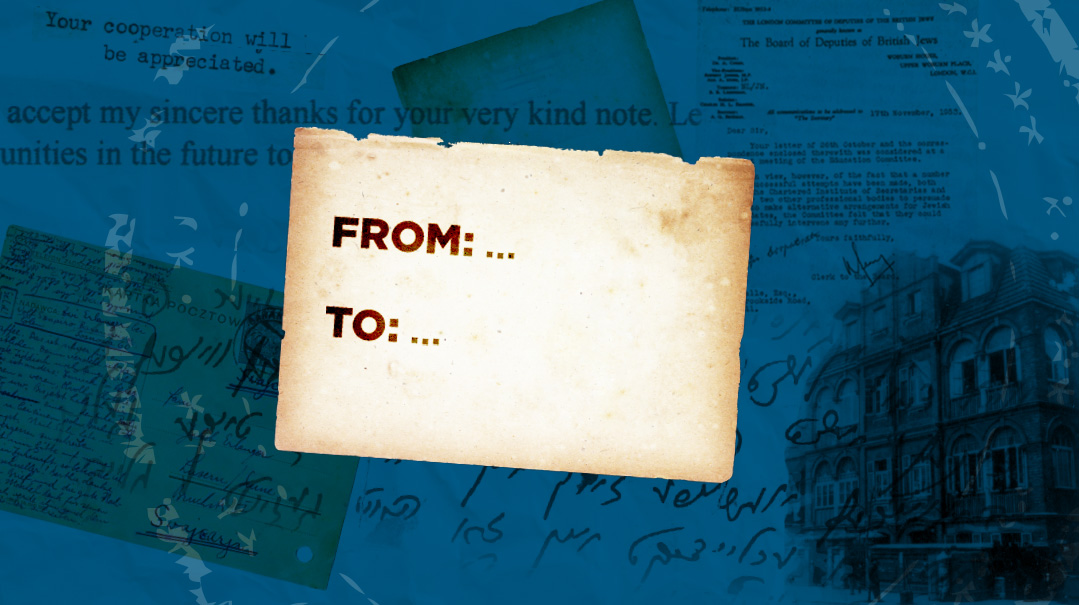
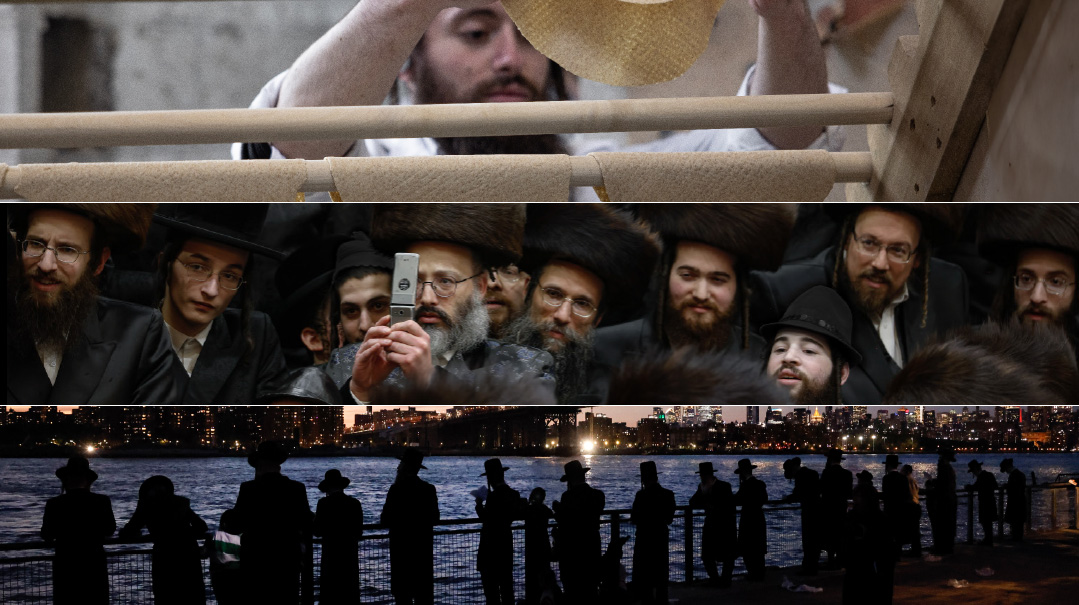
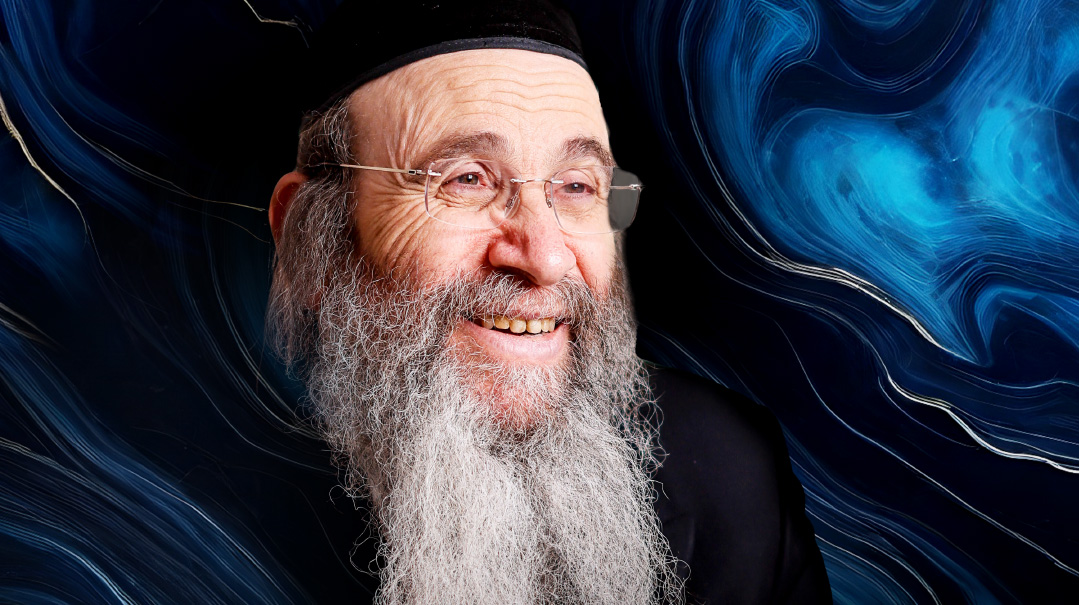
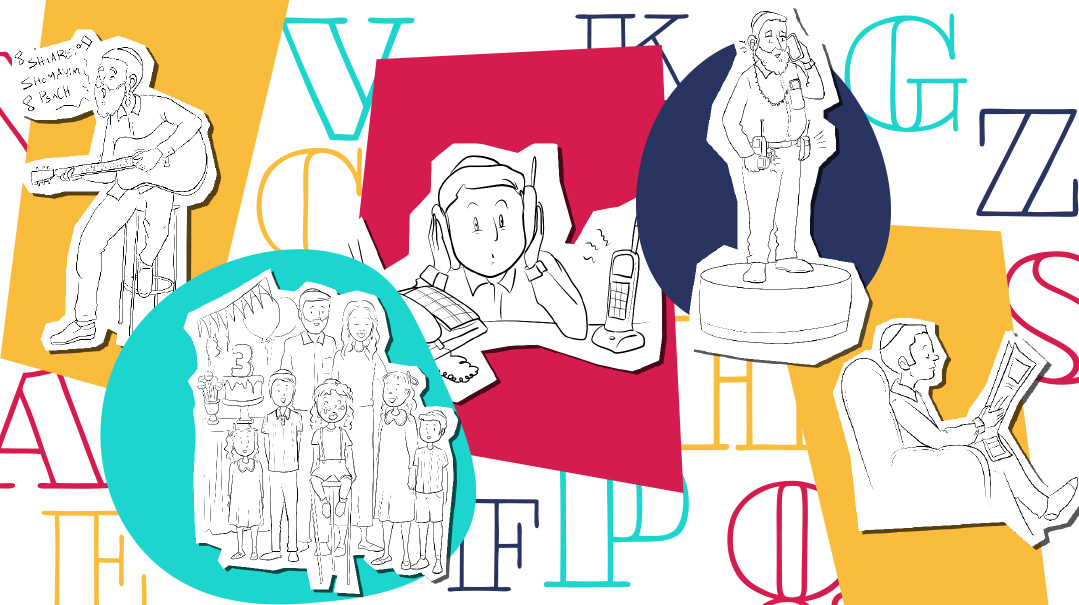

Comments (1)